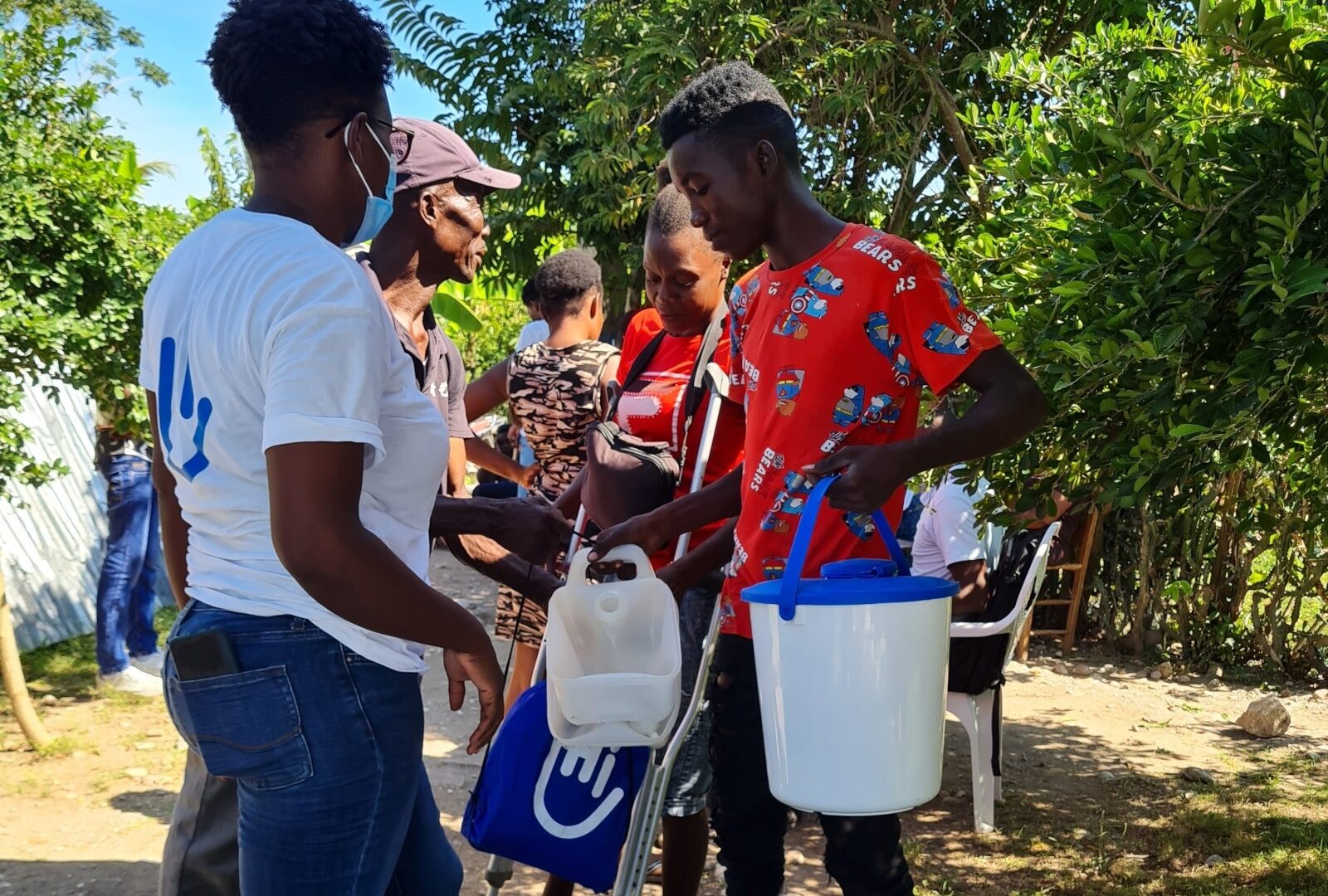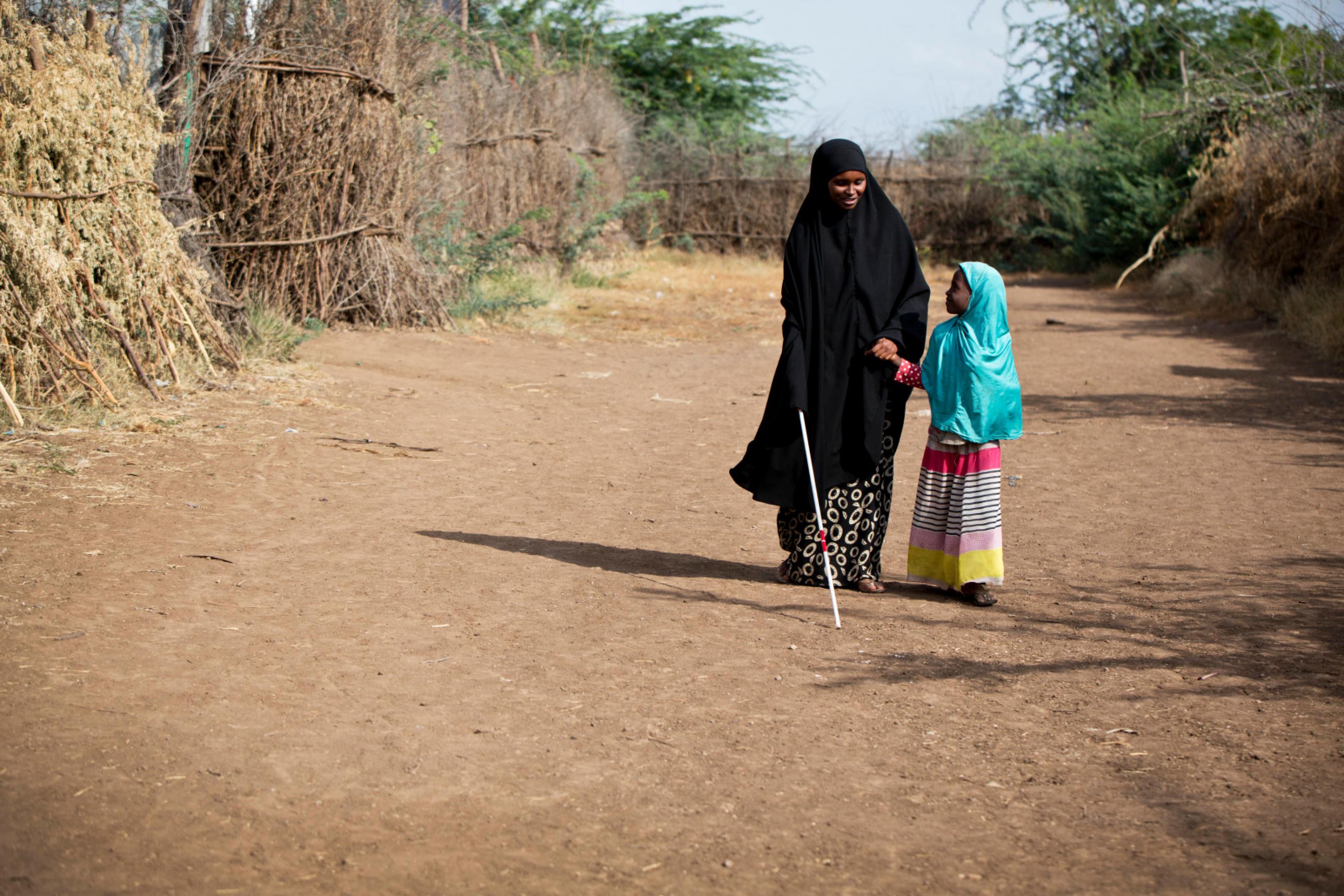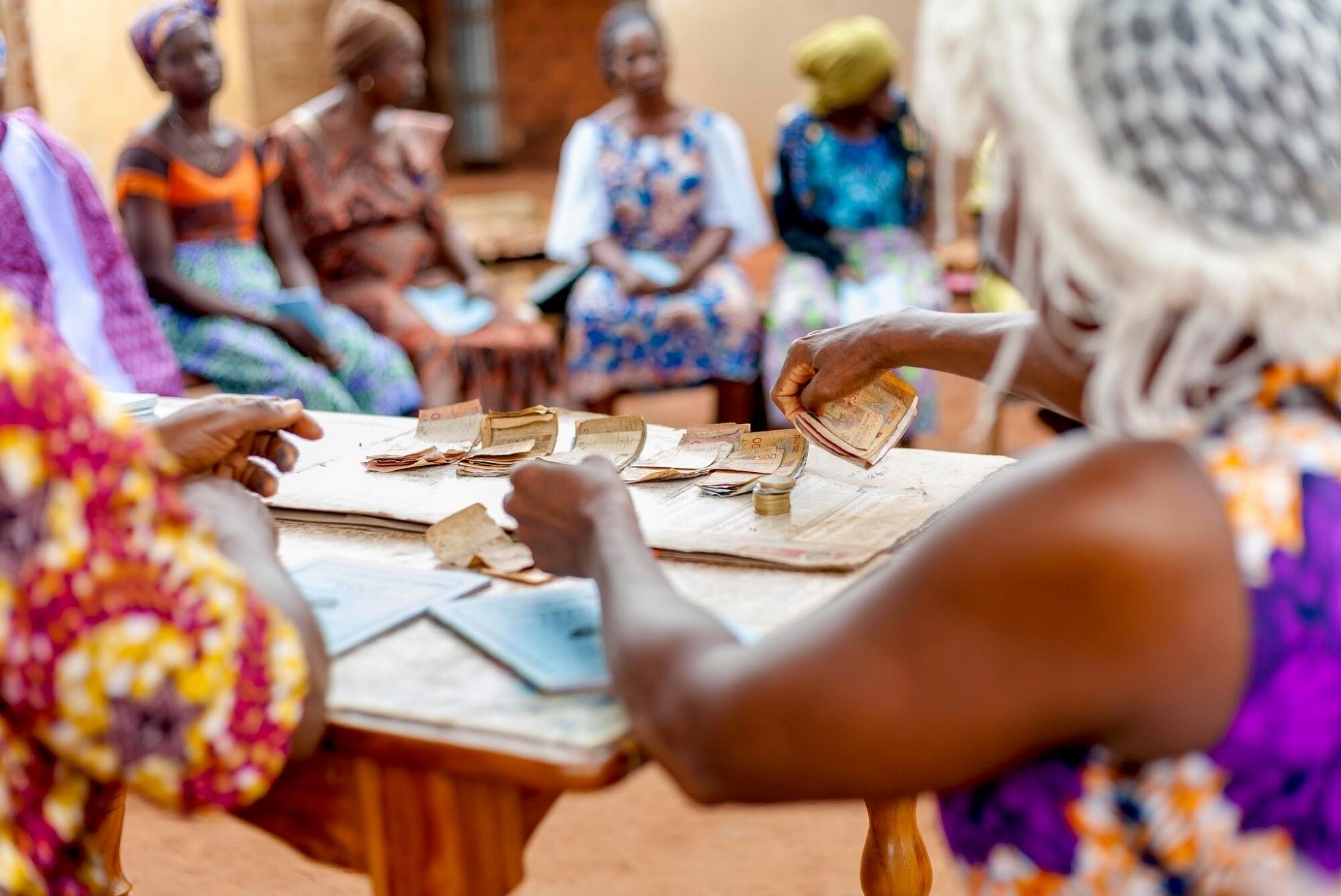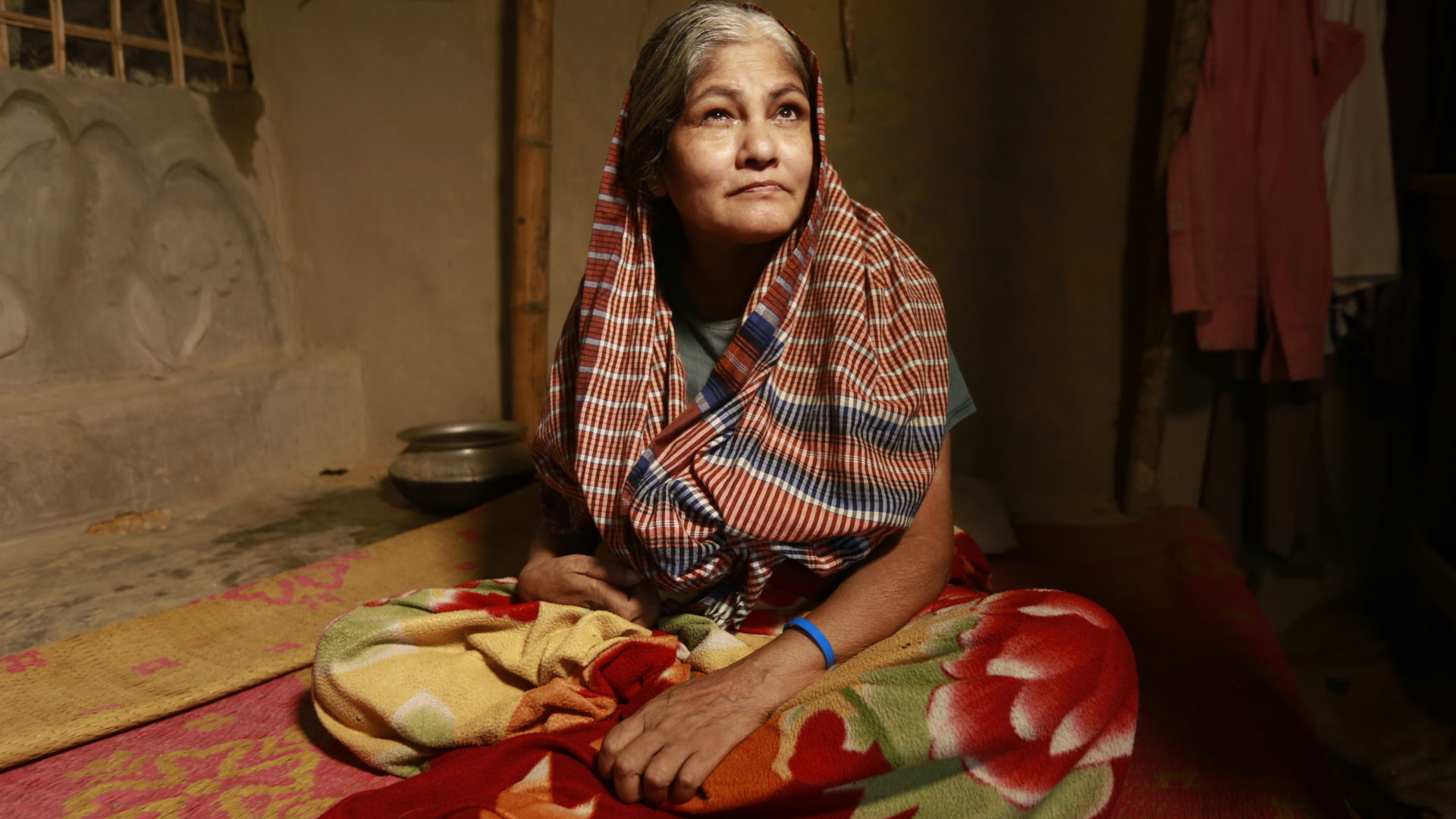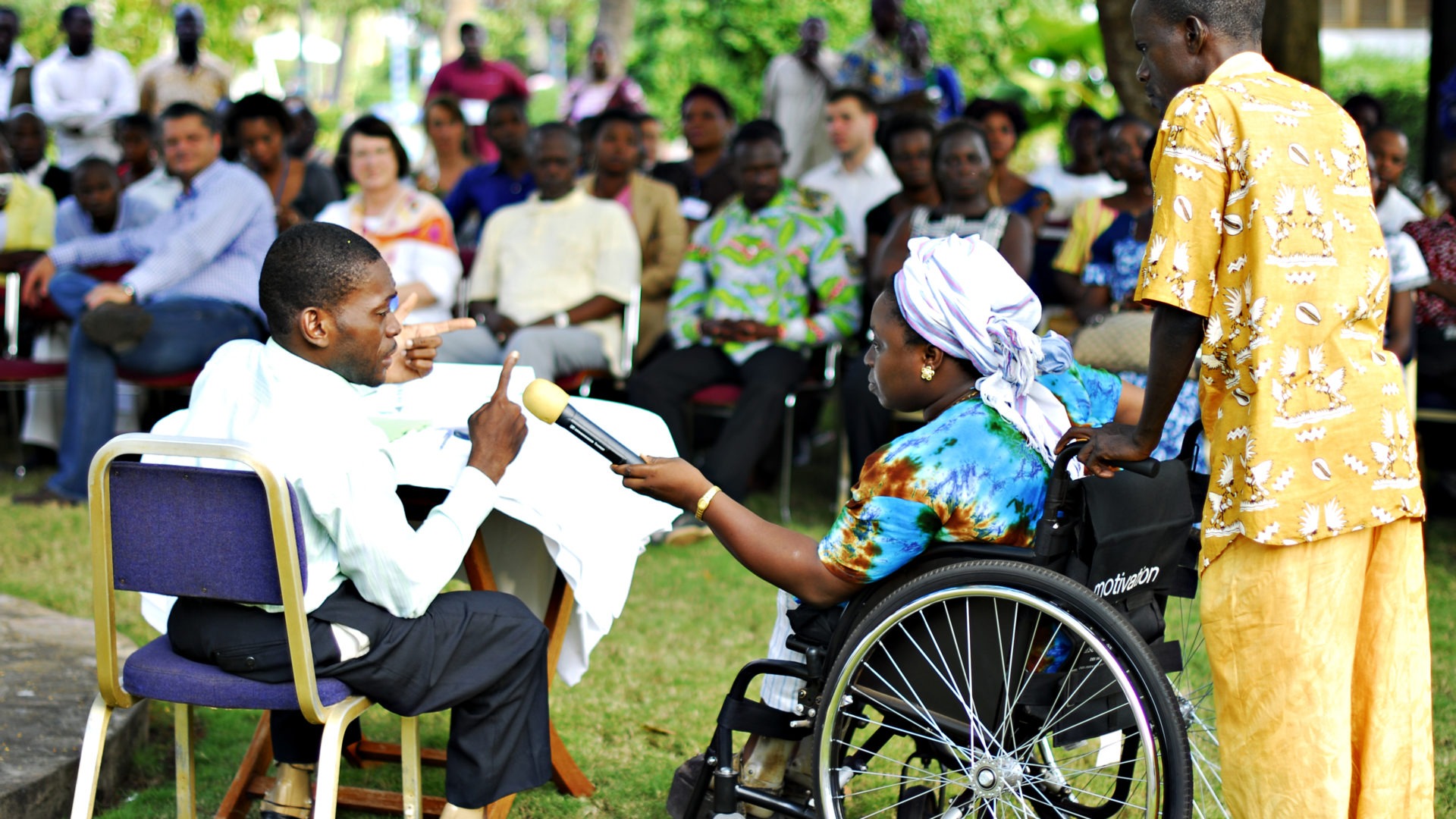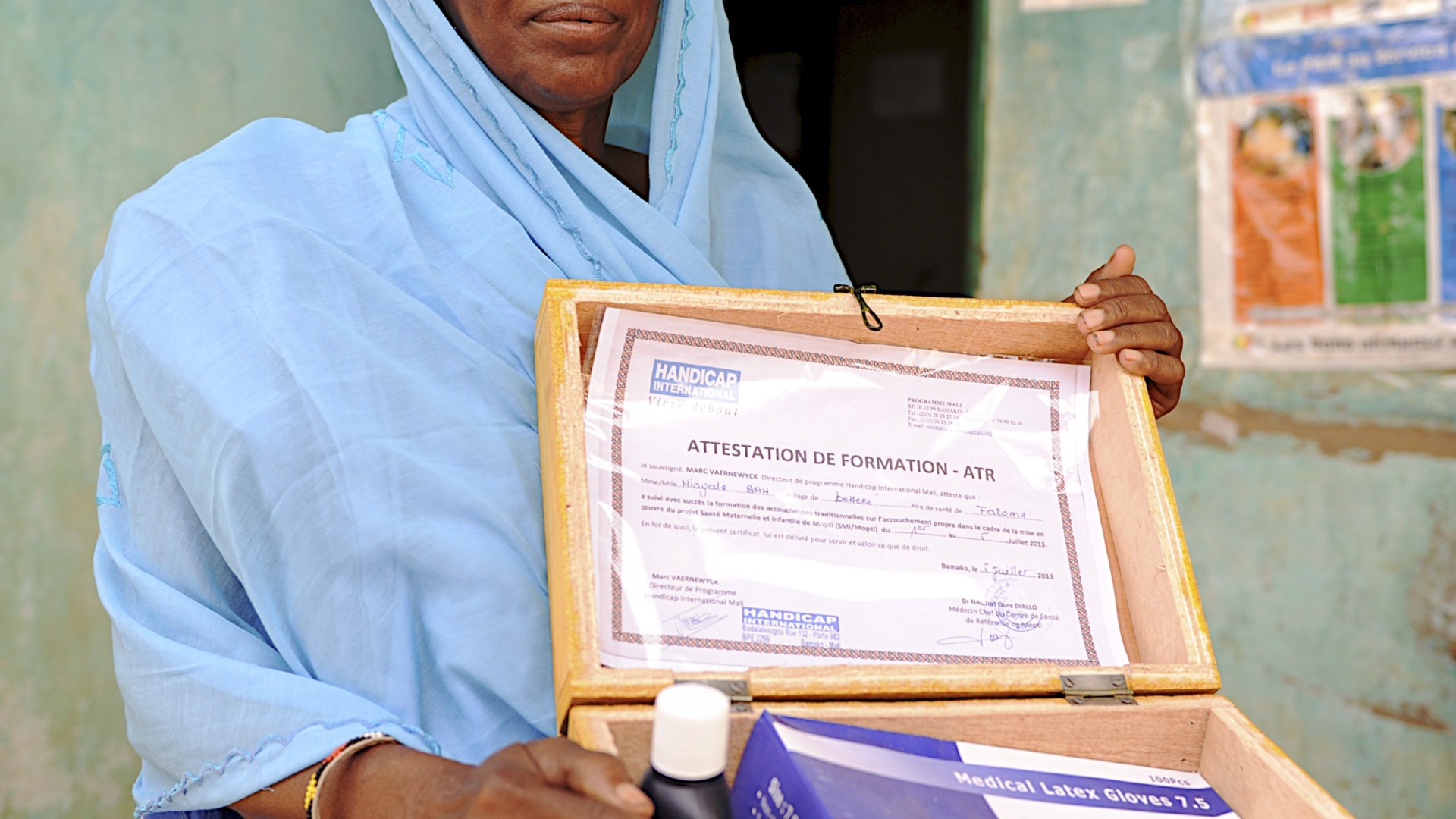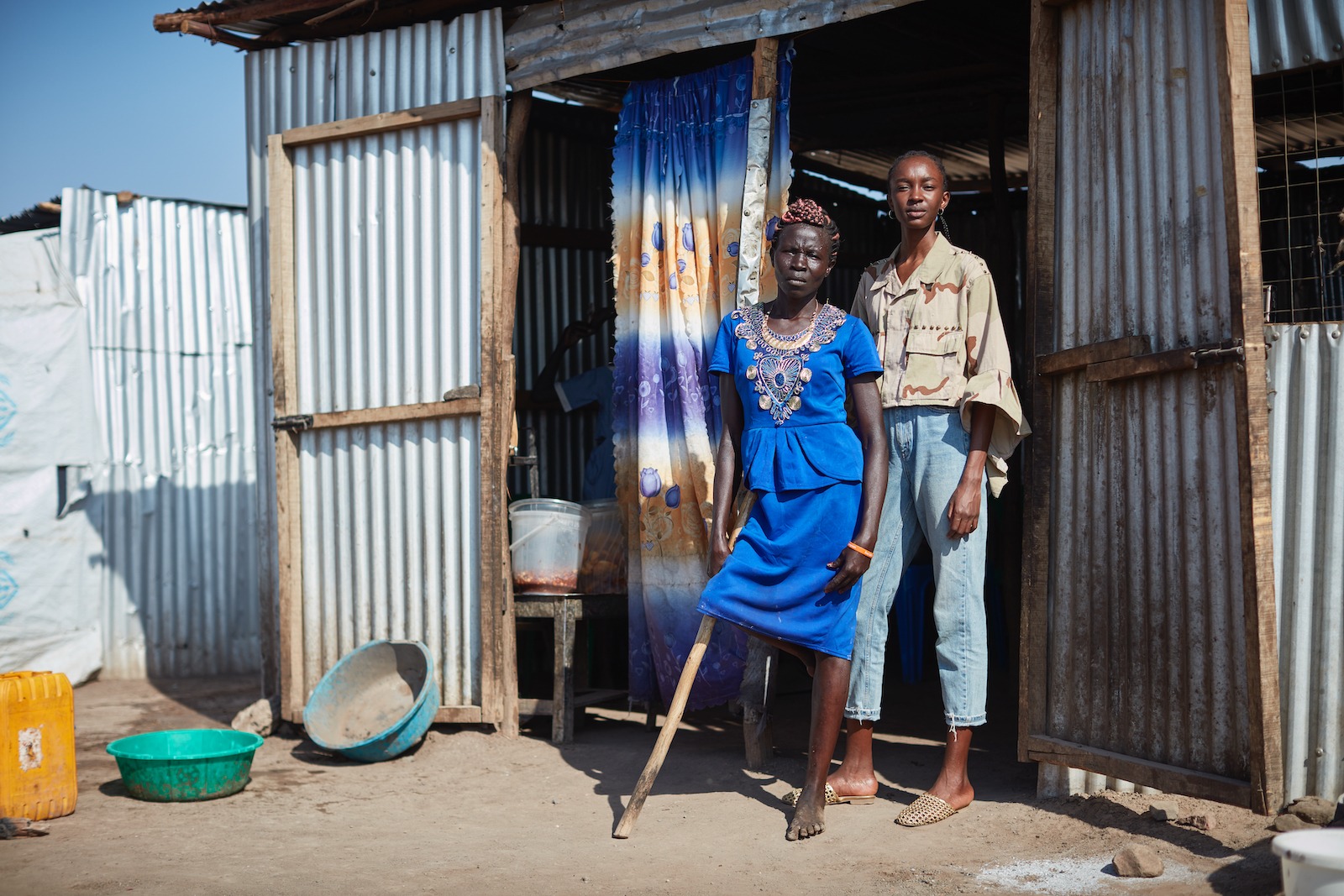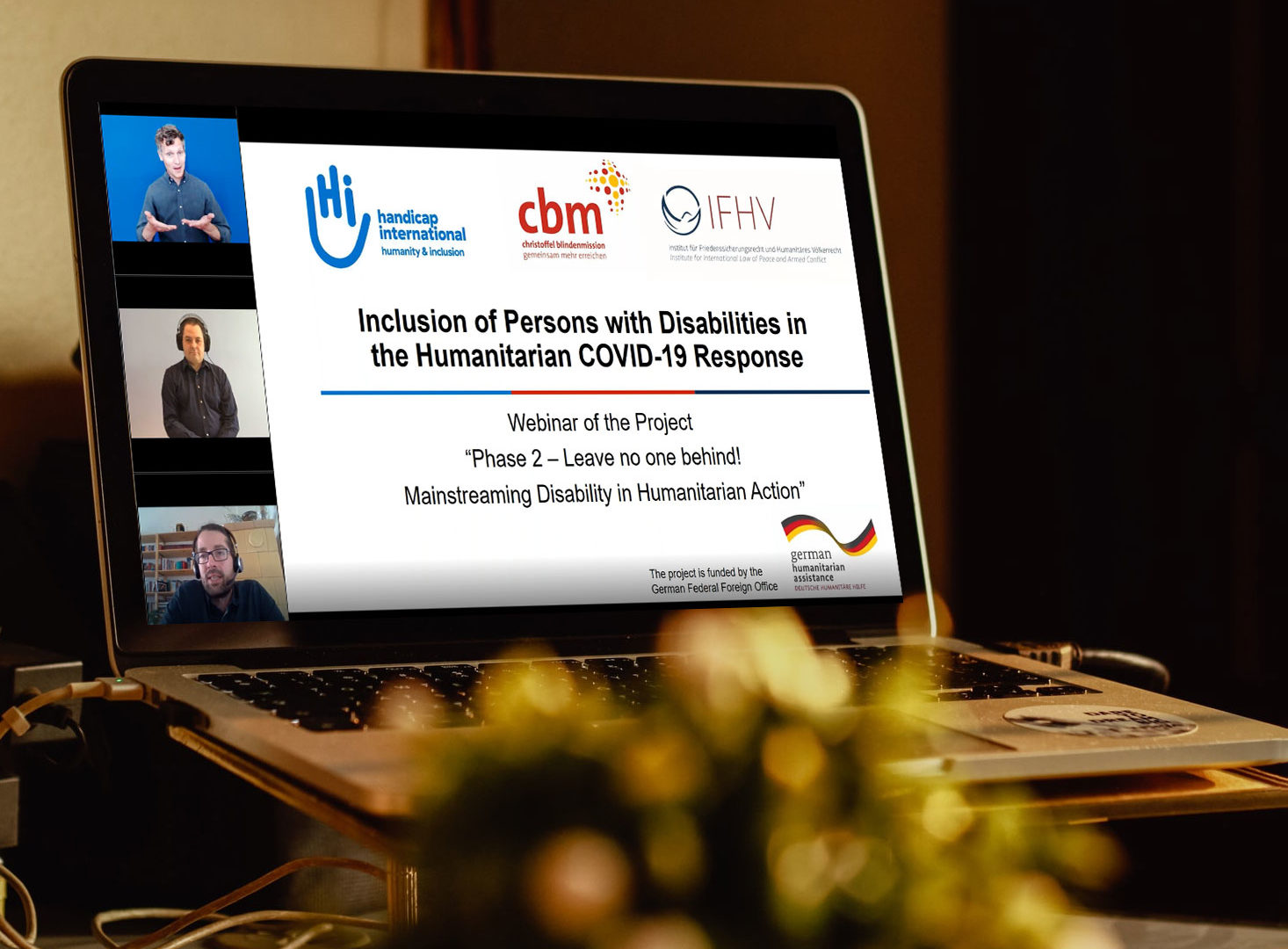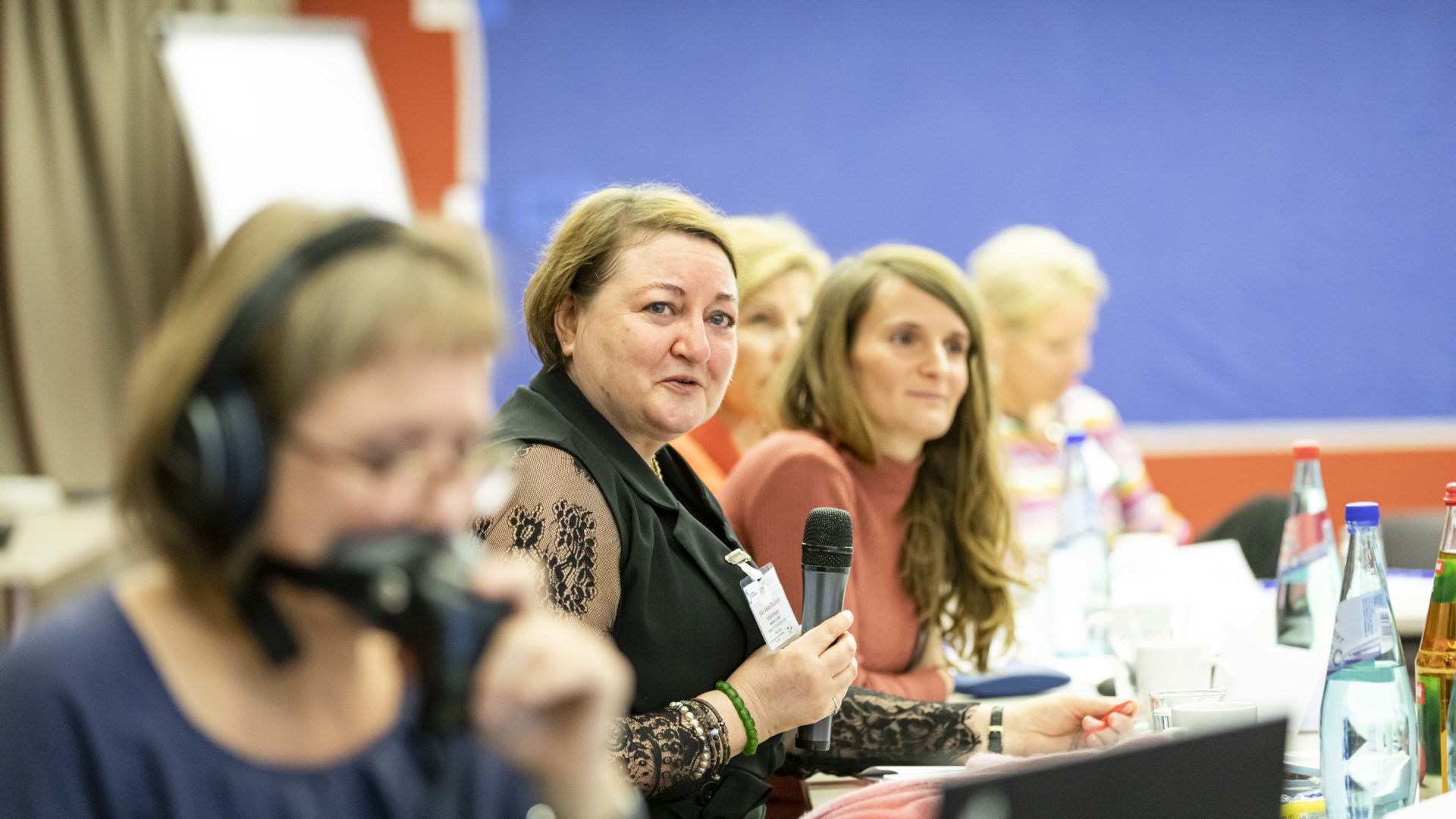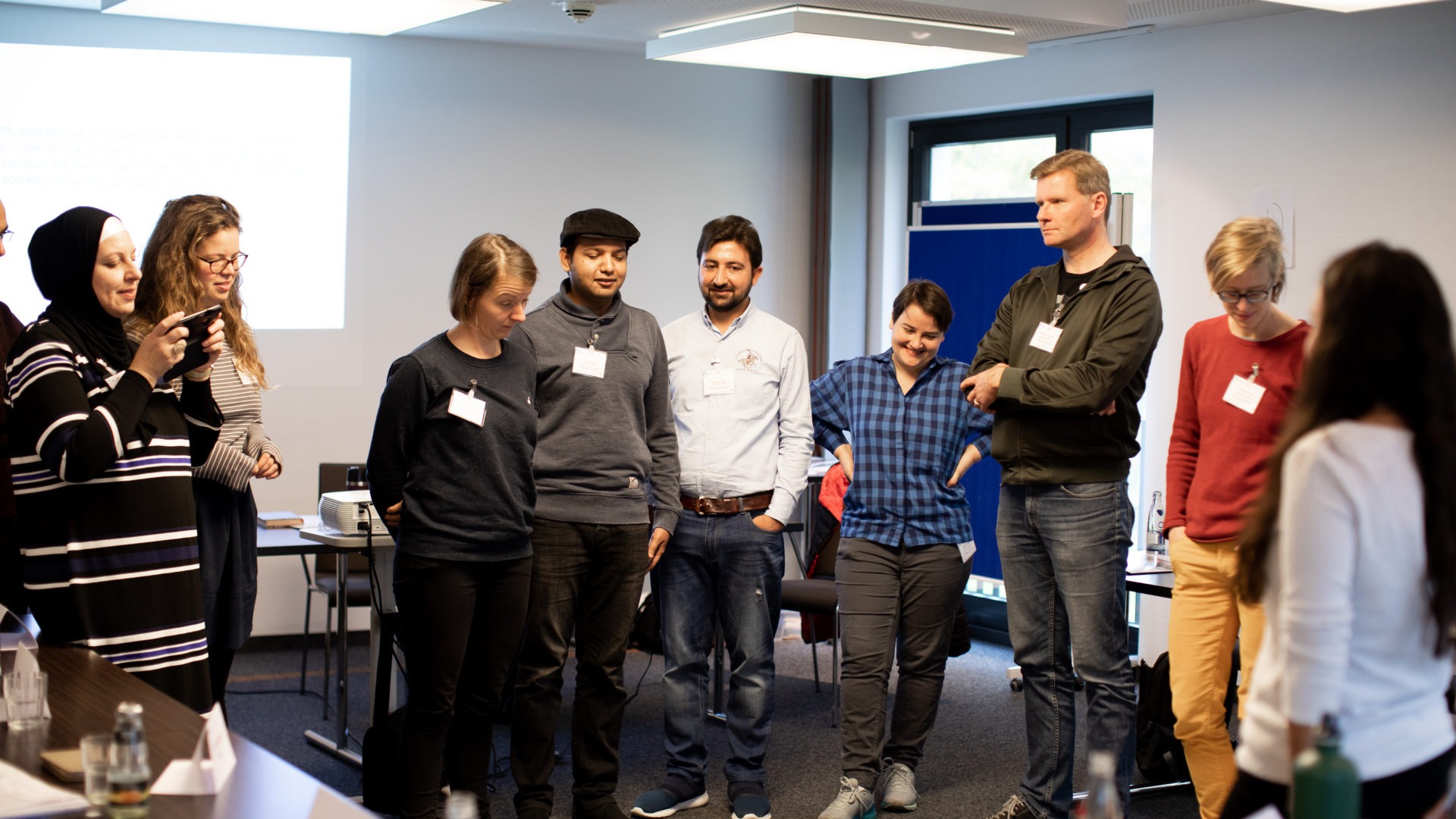Trainings

© Laura Thomas
Awareness Raising Workshops
The awareness raising in-house workshops are half- or full-day trainings to sensitise managers and technical specialists of German state and civil society actors on disability inclusion. The aim is to mobilise and ensure the commitment of middle and senior managements to support organisational change.
A cross-organisation workshop can be provided as well, depending on demand and interest.
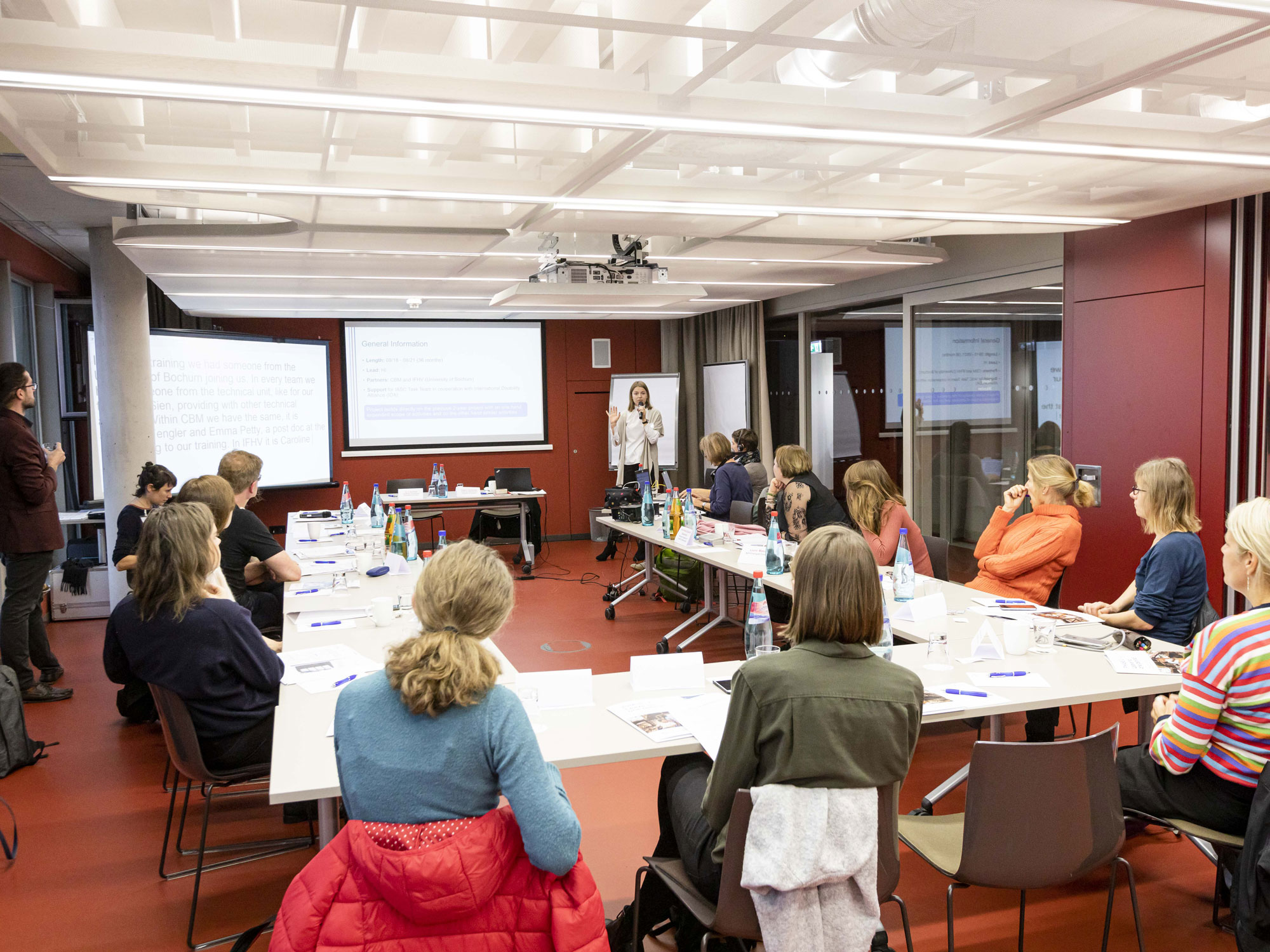
© Jörg Farys
Sector-specific Trainings
Sector-specific introductory and consolidation seminars are directed towards programme managers and technical specialists of German humanitarian actors. The two- or three-day long trainings follow participative learning methods and convey recent evidence-based knowledge. The selection of the topic is based on the results of the first needs assessment.
Past sector-specific trainings covered topics such as “Disability-Inclusive Disaster Risk Reduction” and “Disability-inclusive Project Cycle Management”.
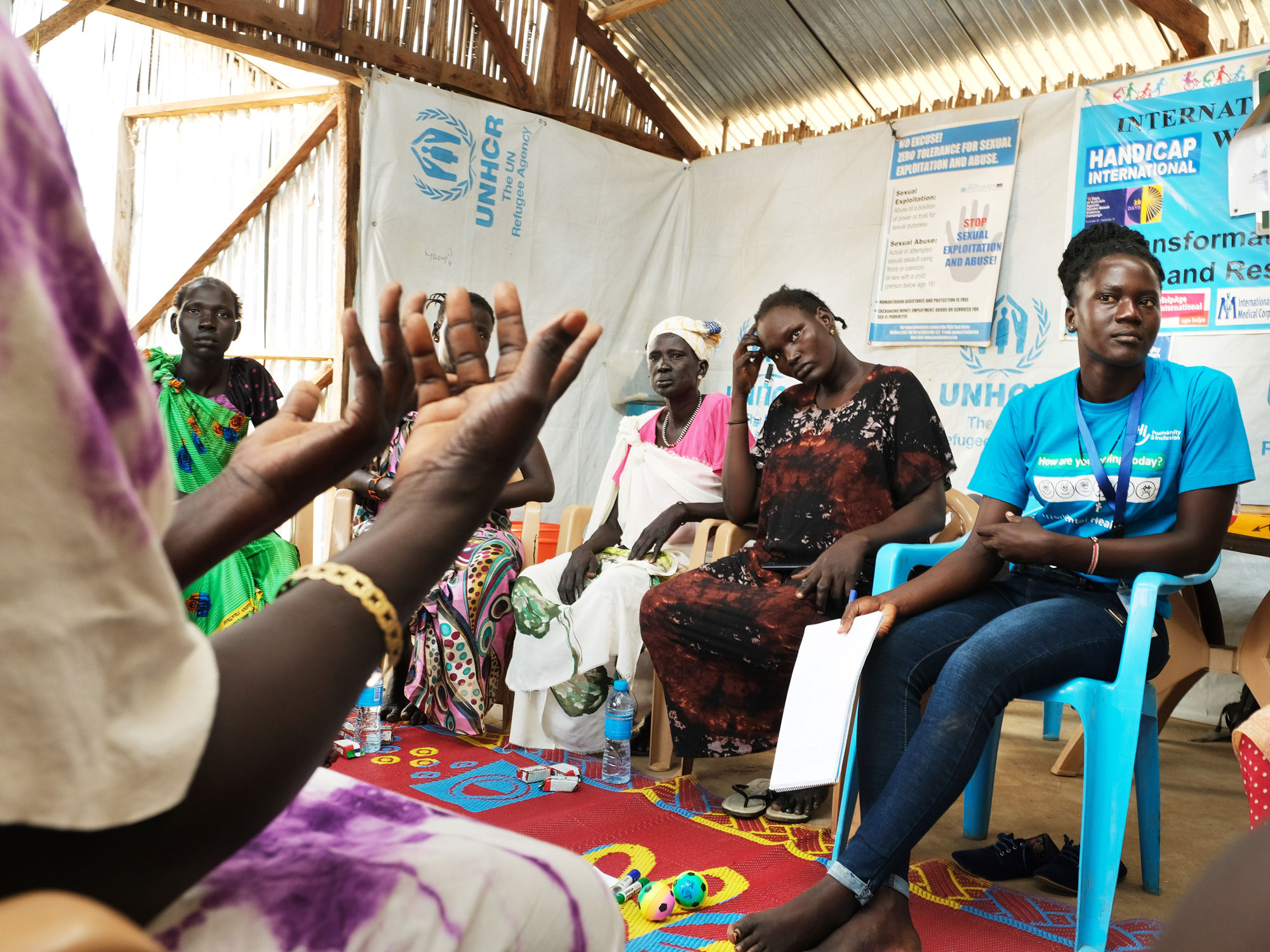
© Dieter Telemans
Regional Sector-specific Trainings
This offer is directed towards German humanitarian organisations and their local partners, wishing to develop a more inclusive humanitarian service delivery. The participating organisations commit to support the change processes in their regional offices in a technical and administrative way. The project is responsible for the necessary support of the teams in Germany.
Transport, accommodation and catering costs are covered by the project in order to ensure a broad participation of local staff.
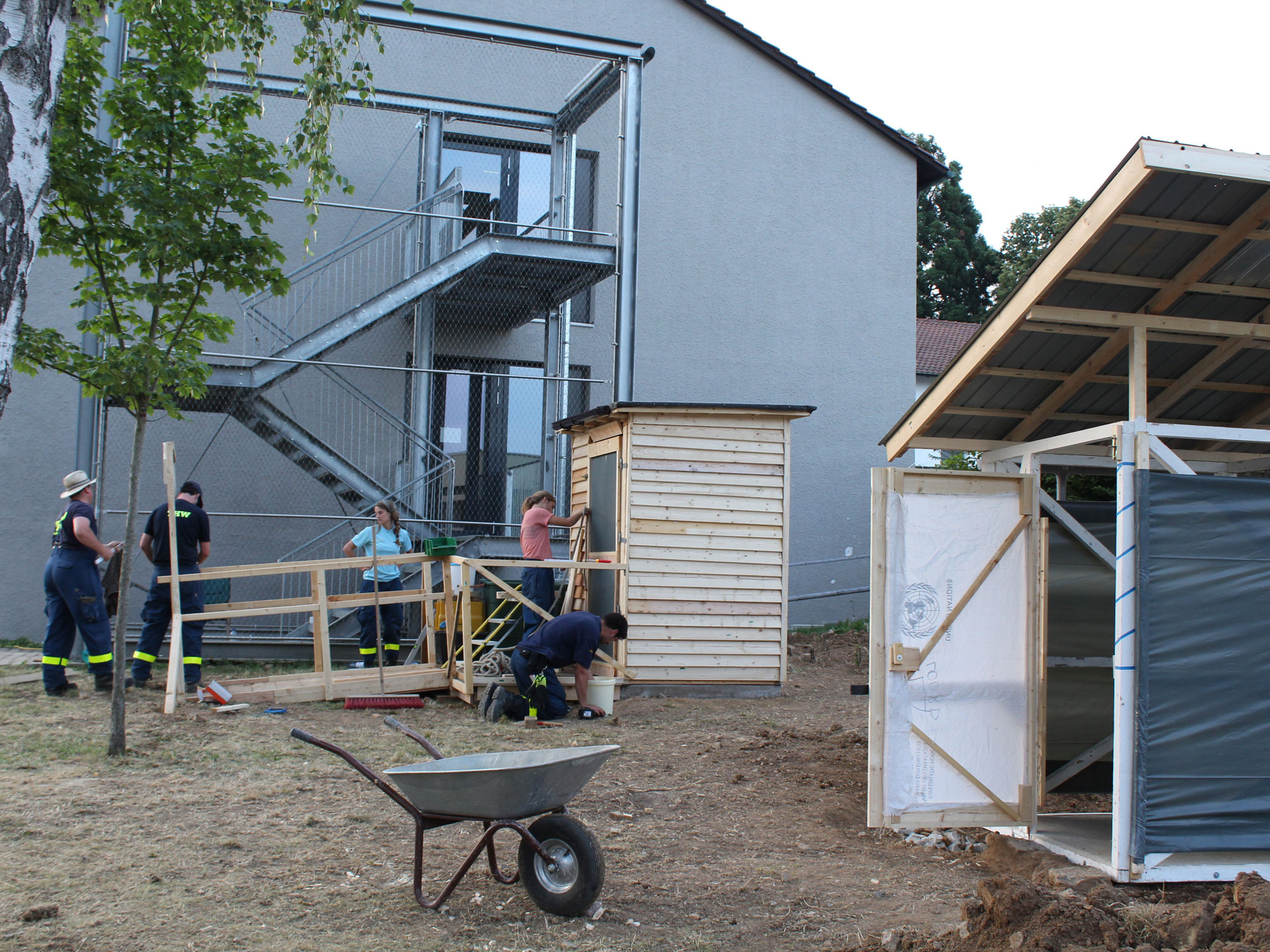
© THW
Contribution in other Trainings
The offer is focused on already existing training activities for German humanitarian actors by for example, the German Association of Development and Humanitarian Action (VENRO) or the Federal Agency for Technical Relief (THW). The project supports in developing disability-inclusive content and the integration of gender, age and disability as cross-cutting issues.
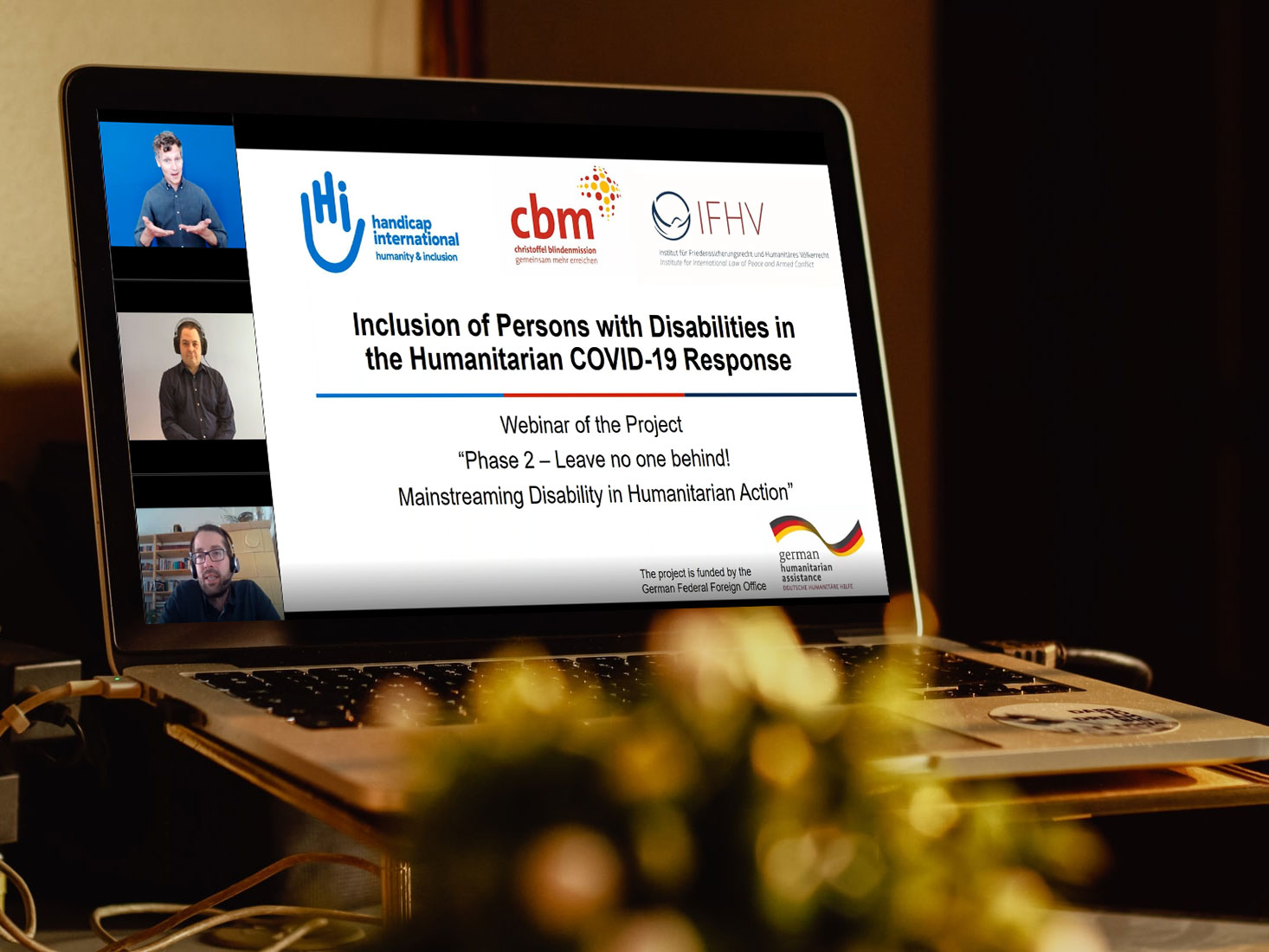
© John Hoang
Online Seminars and Trainings
The current situation presents us with new challenges. We would like to also share our expertise in times of COVID-19. Therefore, we offer needs-oriented online seminars and trainings.
You have a question or don’t want to miss out on any training?
Please do not hesitate to use our contact form or subscribe to our mailing list.
Past Trainings:
Introduction to Disability-Inclusive Health in Humanitarian Action
The project „Phase 3 – Leave no one behind!“ would like to invite you to our upcoming in-person training on “Introduction to disability-inclusive health: Amplifying changes towards an inclusive humanitarian Health Response“. Key Infos When? [...]
Mainstreaming of Disability in Humanitarian Action: Meaningful participation of persons with disabilities in humanitarian action
The project „Phase 3 – Leave no one behind!“ would like to invite you to our upcoming in-person training on “Meaningful Participation of Persons with Disability in Humanitarian Action” Key Infos When? Online Introduction: September 9, 2024 [...]
Training on Disability-inclusive WASH in Humanitarian Action
The project „Phase 3 – Leave no one behind!“ would like to invite you to our upcoming in-person training on “Introduction to disability-inclusive WASH: Amplifying changes towards an inclusive humanitarian WASH Response“. Key Infos When? June [...]
Introduction to disability-inclusive humanitarian action: How to make the IASC Guidelines on Disability-Inclusion work for your programming.
Please note that we have extended the application deadline until 10 March! The project „Phase 3 – Leave no one behind!“ would like to invite you to our upcoming in-person training on „Introduction to disability-inclusive humanitarian action: How to [...]
Planning and Implementation of Disability-Inclusive Cash and Voucher Assistance (iCVA)
The project „Phase 3 – Leave no one behind!“ would like to invite you to our upcoming training on „Planning and Implementation of Disability-Inclusive Cash and Voucher Assistance (iCVA)“. Dates & Times Online Introduction: January 24, 9:30am [...]
Disability-Inclusive Project Cycle Management Central/ Southeast Asia
Please note that we have extended the application deadline. You can submit your application by 4 June (12pm, CEST), here. The project “Phase 2 – Leave no one behind!” would like to invite you to our upcoming virtual regional training on [...]
Meaningful Participation of Persons with Disabilities in Humanitarian Action
Dates and Times Introduction to the Training and Self-Learning Exercise: June 16th, 2:00 to 3:30pm CEST Self-Directed Learning: between June 16th to 23rd, 90 minutes Online course Part I: June 23rd, 2:00 to 4:30pm CEST Online course Part II: June 24th, 2:00 [...]
Disability-Inclusive Primary Health Care
The project „Phase 2 – Leave no one behind!“ would like to invite you to our upcoming virtual sector-specific training on „Disability-inclusive Primary Health Care“ (DiPHC). The training will be conducted online for 3 half days on 14, 15 & 16 [...]
Disability-Inclusive Project Cycle Management East Africa
The project “Phase 2 – Leave no one behind!” would like to invite you to our upcoming virtual regional training on “Disability-inclusive Project Cycle Management”. The training will be conducted online for 4 half days on 24 & [...]
Inclusion of Persons with Disabilities in Humanitarian COVID-19 Response
This webinar brought together global and in-country technical inclusion experts to discuss key barriers and risks for persons with disabilities in the humanitarian COVID-19 response. It further aimed at providing key recommended actions to participants [...]
Disability-inclusive Project Cycle Management
The seminar offered an opportunity to learn about the concept, legal frameworks, global figures of and tools for disability inclusion in humanitarian action. A technical expert imparted relevant basics and gave practical examples of necessary approaches and [...]
Disability-inclusive Disaster Risk Reduction
The seminar offered an opportunity to learn about the concept, legal frameworks, global figures of and tools for disability inclusion in disaster risk reduction. A field expert imparted relevant basics and gave practical examples of necessary approaches and [...]


